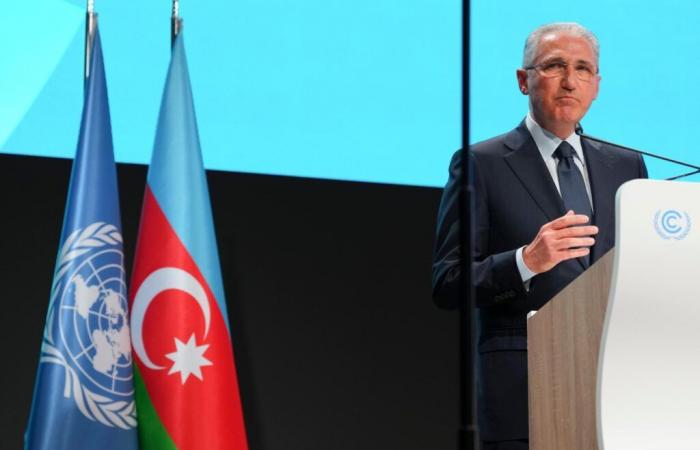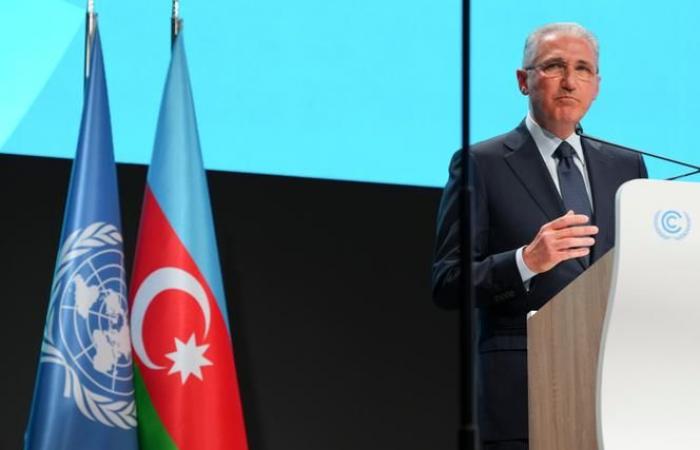A tool synonymous with success or a burden? Monday November 11, in the first minutes of the opening ceremony of the 29e Climate Conference of the Parties (COP29), Sultan Al-Jaber, the president of COP28, passed the hammer that seals major decisions to his successor, Azerbaijan Mukhtar Babayev.
A year after having succeeded in including – for the first time in a climate diplomacy text – the terms of “exit from fossil fuels”the 198 parties now have until November 22, or eleven days, to agree on an amount of financing to help developing countries succeed in their transition « verte ». “We know that these negotiations are complex and difficult”prevented M. Babayev from hiring.
A few hours later, to get its conference off to a good start, the Azerbaijani presidency was already sounding the hammer by adopting rules intended to better regulate part of Article 6 on carbon markets. A strategy identical to that of the United Arab Emirates which had materialized the “loss and damage” fund from the first hours of their COP.
Read also | Article reserved for our subscribers COP29 opens in a geopolitical climate weighed down by the election of Trump and the economic situation
Read later
The sea serpent of climate negotiations since the Paris Agreement, Article 6 has allowed carbon markets to develop without sufficiently solid international standards, according to several studies which have shown the inefficiency of numerous projects. Deemed too flexible by the European Union (EU) and many developing countries, the regulation and standardization project proposed last year at COP28 failed.
Monday evening, the parties approved a text which establishes procedures around article 6.4, entrusting a United Nations body with the task of supervising the exchange of carbon credits between countries or companies. Civil society denounced a forceful move, pointing in particular to the Supervisory Body of Article 6.4, a small technical committee, which will implement the rules “without the opinion of the States”, according to the Center for International Environmental Law (CIEL). “This circumvents the ability of States to discuss, let alone revise, standards before they come into force”estimated Erika Lennon, lawyer at CIEL. The rest of Article 6, notably 6.2, which governs transactions between countries, remains on the negotiators’ agenda.
“We are on the path to ruin”
The organizers were too keen to show off a first victory at the start of this very perilous COP. During the first day, the Azerbaijani presidency first followed in the footsteps of the scientists while the World Meteorological Organization drew, Monday, November 11, “maximum alert”, by explaining that the year 2024 will exceed, for the first time, 1.5°C of global warming, the most ambitious threshold of the Paris agreement adopted in 2015.
You have 53.78% of this article left to read. The rest is reserved for subscribers.







